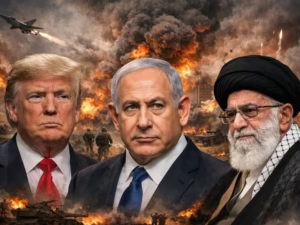GENEVA—17 July 2025—Eleven United Nations Special Rapporteurs, along with the UN Working Group on Arbitrary Detention, issued a joint and unprecedented allegation letter to the Egyptian government in April 2025 to express serious concern over a persistent pattern of discrimination against the Bahaʼi community in Egypt.
The UN experts—who focus on issues ranging from freedom of religion to gender equality, and who are mandated to uphold international human rights standards—united to condemn the Egyptian government’s ongoing discrimination against Baha’is, and the Baha’i International Community (BIC) has previously highlighted the severe and lasting impact that decades of persecution have had on the Baha’i community in Egypt.
The independent experts called on the Egyptian authorities to abide by their international obligations and addressed a range of human rights violations against the Baha’i community. Egypt dismissed the allegations in a response dated 29 May, 2025.
Tactics of faith-based persecution include violations of the right to citizenship and residency, tearing families apart through forced separations; the state’s refusal to allow Baha’is to register their marriages, which in turn creates significant civil obstacles; the denial of the Baha’is fundamental right to freely practice their faith; discrimination that limits access to education and employment opportunities; and pressure on other Egyptian citizens to sever ties with Baha’i friends and colleagues, deepening the community’s social and economic vulnerability.
The UN experts also noted that the incidents of discrimination “represent a pattern of continuous discrimination against Baha’is, aimed at their marginalization in the public space and preventing the enjoyment of their freedom of belief, conscience or religion,” adding that “such actions may therefore be in contravention of the Arab Republic of Egypt’s international human rights obligations.”
“We are grateful to the Special Rapporteurs and the Working Group on Arbitrary Detention for exposing the ongoing persecution of the Baha’i community in Egypt,” said Dr. Saba Haddad, BIC Representative to the United Nations in Geneva. “It is particularly troubling that, while several countries in the region are taking commendable steps to promote coexistence and inclusive citizenship, Egypt continues to target Baha’is solely because of their beliefs. This reality stands in stark contrast to Egypt’s stated commitments to pluralism and human rights, and we urge the Egyptian authorities to end all forms of persecution against the Baha’i community and to restore all their civil and human rights.”
Despite the many examples of religious persecution detailed in the allegation letter, the Egyptian government’s reply claimed that the Egyptian Constitution stipulates that “freedom of belief is absolute,” and it remained “fully committed to its duties towards its citizens in accordance with the Constitution and national legislation, as well as all human rights conventions to which it has acceded.” Egypt also dismissed UN Member States concerns regarding violations of freedom of religion or belief during its Universal Periodic Review (UPR) session at the UN Human Rights Council in early July, where it did not accept several recommendations aimed at combating all forms of discrimination and violence against religious minorities. Egyptian authorities claimed that such measures are already implemented through existing constitutional guarantees.
“The Egyptian government’s dismissive response to both the allegations expressed by eleven highly-respected UN human rights experts, and the concerns of fellow UN Member States at the recent Universal Periodic Review, shows that Egypt’s authorities do not care about the lived reality of an entire religious community, one that has suffered state-sponsored persecution for decades,” said Dr. Haddad. “But the Egyptian government must change course now—and it can do so if it accepts the concerns of experts and its peers on the international stage by restoring all the rights of the Baha’i community.”
Background: A major intervention on behalf of Egyptian Baha’is
- The letter outlined several key areas in which Baháʼís in Egypt face severe restrictions. These include the confiscation of Baha’i properties, such as cemeteries, and the government’s refusal to allocate new burial grounds. In its response to the communication, the Egyptian government claimed that the state regulates the procedures for establishing cemeteries for all individuals, regardless of whether they adhere to one of the monotheistic religions, provided that the necessary legal procedures are met, with respect for human dignity after death. However, the Baha’i community has repeatedly requested the allocation of additional burial land, as the only existing cemetery designated for them is nearing full capacity. Government officials have denied these requests, even seeking the opinion of religious authorities at Al-Azhar, who issued an edict stating that “it is not permissible to allocate a plot of land for the burial of the dead for those who have the (–) dash sign or any other designation …”
- Further concerns included the use of a dash (–) in the compulsory religion field on national identity cards for Baha’is, which serves as a widespread tool of exclusion and significantly impedes access to employment, education, healthcare, and other essential services. The letter also highlighted the rise in surveillance and intensified harassment of Baha’is in recent years, noting that Baha’i individuals have been placed on airport watch lists and that the community’s social and humanitarian projects have been forcibly shut down. Even the friends and colleagues of Baha’is have reportedly been pressured by security officials to sever ties with community members, further isolating them and implicating the authorities in this marginalization. The Egyptian government did not address any of the allegations regarding the surveillance or harassment of Baha’is, and merely stated that allowing a dash or blank space in the religion field on national identity cards helps prevent discrimination.
- The letter also highlighted significant barriers to registering Baha’i marriages, which in turn trigger a cascade of intergenerational legal and civil violations. These include risks of statelessness, disinheritance, denial of birth certificates, and the loss of residency or citizenship rights for the children of Baha’i couples, as well as restricted access to healthcare and education. In many cases, women and children are prevented from accessing benefits such as a husband’s insurance or inheritance.
- In its reply, the Egyptian government dismissed all of the allegations, stating that the Egyptian legal system upholds the principle of citizenship neutrality, which is independent of religion or belief. It further claimed that Egyptian law contains no provision preventing the children of Baha’i citizens from acquiring nationality, and asserted that all citizens and residents in Egypt enjoy basic services such as education, healthcare, and employment without discrimination based on religion or other factors. This response reflects the authorities’ unwillingness to acknowledge responsibility or demonstrate any genuine commitment to addressing the current situation.
- The UN experts also expressed concern over the arbitrary detention of Mr. Omid Seioshanseian, a senior Baha’i official and Turkish national, who was visiting Egypt in December 2024. He was detained at Cairo International Airport, where he was handcuffed, blindfolded, and physically mistreated by the State Security Investigations agency. During the interrogation, Mr. Seioshanseian was told that the Baha’i Faith is illegal in Egypt and that he had violated the law by meeting with Baha’is during his visit. The Egyptian government claimed that the state strictly adheres to fair trial guarantees and does not engage in arbitrary detention, in line with national legislation and international standards.
- The six UN Special Rapporteurs and five members of the UN Working Group on Arbitrary Detention are independent experts mandated by the UN Human Rights Council to report to the international community regarding particular rights, collectively contributing to the respect, protection and fulfilment of international human rights standards. These experts, whose mandates span issues such as freedom of religion or belief and the right to education, have jointly called out the Egyptian government’s persecution of the Baha’i community. They have urged the government to provide a substantive response to these allegations and to take immediate action to fully protect and respect the Baha’i community’s human rights in line with international law.








